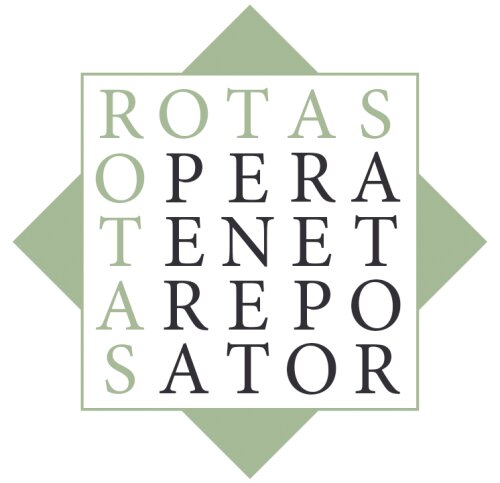Best Technology Transactions Lawyers in Rome
Share your needs with us, get contacted by law firms.
Free. Takes 2 min.
List of the best lawyers in Rome, Italy
About Technology Transactions Law in Rome, Italy
Technology Transactions law in Rome, Italy, encompasses the legal aspects regarding the development, transfer, licensing, and commercialization of technology. Given the city's strong emphasis on innovation and commerce, there is a robust legal framework in place to protect intellectual property, oversee the distribution of technology, and manage contractual relationships between stakeholders in the tech sector. These transactions are pivotal in sectors such as software, telecommunications, biotechnology, and other high-tech industries. Navigating this complex legal landscape requires an understanding of both domestic Italian laws and international regulations that may apply to cross-border transactions.
Why You May Need a Lawyer
Individuals or businesses may seek legal assistance in Technology Transactions for various reasons. These include drafting or reviewing technology licensing agreements, negotiating software development contracts, ensuring compliance with data protection regulations like the GDPR, managing intellectual property rights during tech transfers, and navigating legal issues in e-commerce and digital platforms. Lawyers with expertise in this field can help parties avoid legal pitfalls, protect their interests, and facilitate smooth transactions in the rapidly evolving tech landscape.
Local Laws Overview
The key components of Technology Transactions law in Rome are constituted by the Italian Civil Code, intellectual property laws, specific data protection regulations such as the GDPR, e-privacy directives, and other EU and international treaties. The Italian legal framework ensures rigorous protection of patents, trademarks, and copyrights, alongside a robust set of rules for contracts that often govern the licensing and sale of technology. Additionally, Italy has specific decrees covering digital administration and electronic signatures that are essential to consider in tech transactions.
Frequently Asked Questions
What legal issues should I consider when entering a technology licensing agreement?
It's crucial to address intellectual property rights, scopes of license, exclusivity clauses, and considerations regarding sublicensing. Liability, indemnity, and dispute resolution mechanisms are equally important.
How do data protection laws affect technology transactions in Rome?
Transactions involving personal data must comply with GDPR, which includes ensuring data subjects' rights, data security measures, and potential data transfer outside the EU.
What should I be aware of when dealing with cross-border technology transactions?
You should consider international trade laws, potential import/export restrictions, and the enforcement of intellectual property rights across different jurisdictions.
Are electronic signatures valid and binding for technology transactions in Italy?
Yes, electronic signatures are legally recognized, provided they meet certain standards established in the EU eIDAS Regulation and Italian law.
Can I protect my software through copyrights in Italy?
Absolutely, software can be protected as a literary work under Italian copyright laws, provided it meets originality criteria.
What is the importance of due diligence in technology transactions?
Due diligence helps identify and mitigate risks associated with the technology's legal status, intellectual property rights, compliance issues, and technical soundness.
How are disputes typically resolved in technology transactions?
Disputes may be resolved through arbitration, mediation, or litigation, depending on contractual agreements and the nature of the dispute.
Are there any specific regulations regarding cloud computing contracts?
While there's no specific regulation solely for cloud computing, such contracts must adhere to data protection laws, service level agreements, and other relevant IT laws.
What role do technology transaction lawyers play during mergers and acquisitions (M&A)?
Lawyers help with the due diligence process, safeguarding the transfer of technology assets, ensuring compliance with relevant regulations, and drafting relevant M&A documentation.
How does Italian law address the exporting of technology?
Exporting technology could be subject to various regulations including export control laws, which might require obtaining licenses or permits for certain types of technology.
Additional Resources
For further guidance, individuals can consult the Italian Data Protection Authority ('Garante per la protezione dei dati personali'), the Italian Patent and Trademark Office (UIBM), and organizations such as the Association for Computing Machinery (ACM) Italian Chapter for resources and information. Professional legal associations like the Italian Association for Information Technology and Law (AITR) can also provide expertise in technology law.
Next Steps
If you are in need of legal assistance in Technology Transactions, the first step is to seek out a lawyer or law firm that specializes in technology law and intellectual property. Initial consultations will help clarify your needs and outline an appropriate legal strategy. Legal professionals in this field can provide not just representation but also tailored advice to ensure that your technology transactions are compliant and secure.
Lawzana helps you find the best lawyers and law firms in Rome through a curated and pre-screened list of qualified legal professionals. Our platform offers rankings and detailed profiles of attorneys and law firms, allowing you to compare based on practice areas, including Technology Transactions, experience, and client feedback.
Each profile includes a description of the firm's areas of practice, client reviews, team members and partners, year of establishment, spoken languages, office locations, contact information, social media presence, and any published articles or resources. Most firms on our platform speak English and are experienced in both local and international legal matters.
Get a quote from top-rated law firms in Rome, Italy — quickly, securely, and without unnecessary hassle.
Disclaimer:
The information provided on this page is for general informational purposes only and does not constitute legal advice. While we strive to ensure the accuracy and relevance of the content, legal information may change over time, and interpretations of the law can vary. You should always consult with a qualified legal professional for advice specific to your situation.
We disclaim all liability for actions taken or not taken based on the content of this page. If you believe any information is incorrect or outdated, please contact us, and we will review and update it where appropriate.
















